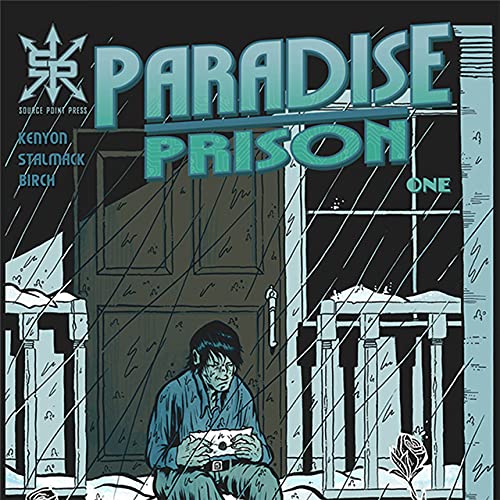In the tapestry of human experience, the dichotomy of imprisonment and liberation serves as a poignant metaphor for the spiritual journey. Within the Bahá’í Faith, this theme resonates profoundly, encapsulating the teachings that urge individuals to transition from a state of existential confinement to one of sublime freedom. The metaphorical framework of “From Prison to Paradise” elucidates the transformative potential of spiritual awakening, portraying how the pursuit of truth and adherence to divine principles can elevate the soul beyond the material confines of the world.
The narrative begins with the notion of prison, which in this context transcends the physical boundaries typically associated with incarceration. It symbolizes any state of profound discontent, existential despair, and spiritual ignorance. Such imprisonment is not merely a condition of the body but a state of mind—a constriction of the heart and spirit that fetters individuals, blinding them to the profound beauty of existence and the divine purpose woven into the fabric of life. The teachings of the Bahá’í Faith assert that all humans, regardless of their circumstances, have the capacity to transcend these limitations.
At the heart of this transformation is the recognition of the divine attributes inherent in each individual. The Bahá’í teachings emphasize that humanity is endowed with the potential for greatness; the latent qualities of love, compassion, and creativity lie dormant within, waiting to be awakened. The metaphor of a prison, therefore, serves as a catalyst for introspection, urging individuals to examine their inner constraints. It is through this process of self-reflection that one begins to understand the importance of spiritual education as the key to liberation.
Spiritual freedom in the Bahá’í context is intricately linked to the acquisition of knowledge and the development of virtues. The process of learning becomes a vehicle for transcendence, allowing individuals to dissolve the barriers that have historically inhibited their growth. The teachings advocate for an unquenchable thirst for knowledge, portraying it as both a personal journey and a collective imperative. This pursuit fosters a deeper understanding of the interconnectedness of all human beings and the universality of spiritual truth.
As individuals engage with the teachings, they begin to cultivate qualities that lead them closer to a state of paradise—a realm characterized by unity, love, and harmony. This paradise is not an ethereal destination but rather an attainable state of being. The Bahá’í Faith teaches that genuine happiness stems from service to others, heralding the idea that in lifting others from their own metaphorical prisons, one simultaneously ascends to a higher plane of existence. Through acts of kindness, compassion, and selflessness, individuals contribute to the collective upliftment of humanity, further enhancing their spiritual journey.
Moreover, the concept of paradise is profoundly democratic in the Bahá’í vision. It is an inclusive realm, devoid of the dichotomies often prevalent in human society. This aspect is particularly significant when considering the historical context of the Bahá’í Faith’s emergence in the 19th century, a time characterized by division and strife. The teachings advocate for the elimination of prejudices, stressing that true liberation can only be achieved when humanity recognizes its unified essence. The idea resonates across cultural and geographical boundaries, illustrating that the path from prison to paradise is accessible to all, irrespective of background or belief.
Understanding the teachings further involves recognizing the role of hardship and adversity in the spiritual journey. Just as a prison often serves as a crucible for personal transformation, trials and tribulations can catalyze profound growth. The Bahá’í Faith encourages individuals to embrace challenges, viewing them as opportunities for development rather than impediments. This perspective reshapes one’s relationship with suffering, turning it into a stepping stone toward the realization of one’s higher self.
In a broader sense, the journey from prison to paradise embodies the evolution of collective consciousness. The Bahá’í narrative implores humanity to transcend sectarianism, nationalism, and materialism—collective prisons that hamstring progress. The teachings prophesy an era of global unity, urging humanity to work in tandem toward the establishment of a world that reflects the values of justice, equity, and love. It is a clarion call for the reinvigoration of spiritual principles in every aspect of life, from governance to daily interactions, fostering a collective effort toward a more harmonious existence.
In conclusion, the metaphor of “From Prison to Paradise” encapsulates a profound truth espoused in the Bahá’í teachings: spiritual freedom is a journey that beckons every individual to embark upon. It emphasizes the importance of education, the cultivation of virtues, and service to humanity as pathways to elevate the self. Through resilience in the face of adversity and the commitment to global unity, individuals may traverse the terrain of their own prisons and emerge into the radiant light of paradise—a transformative state wherein the divine attributes become manifest. This journey, while deeply personal, is ultimately a collective endeavor that promises a brighter future for all humanity, illustrating the unique appeal and timeless relevance of Bahá’í teachings in the modern world.
